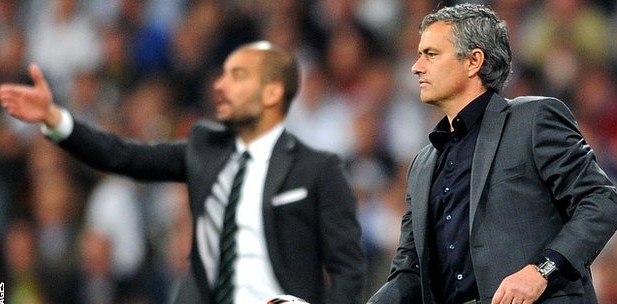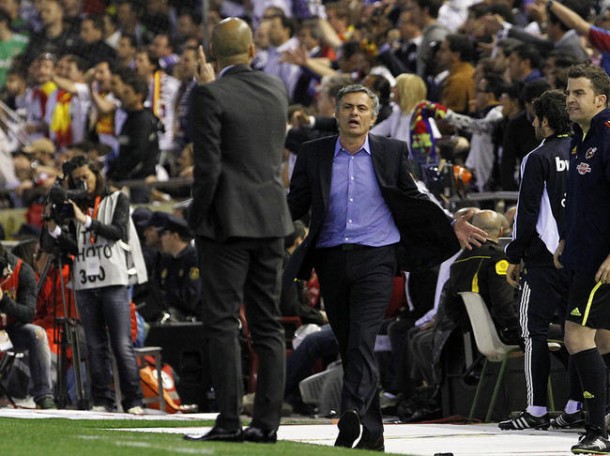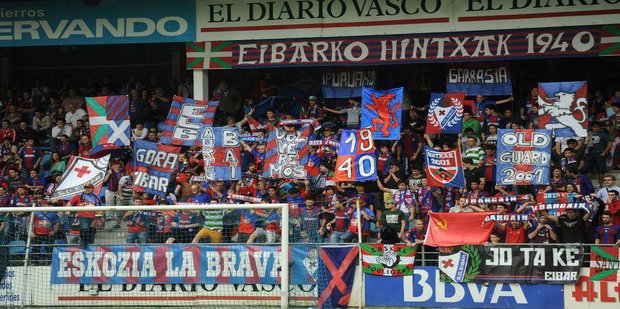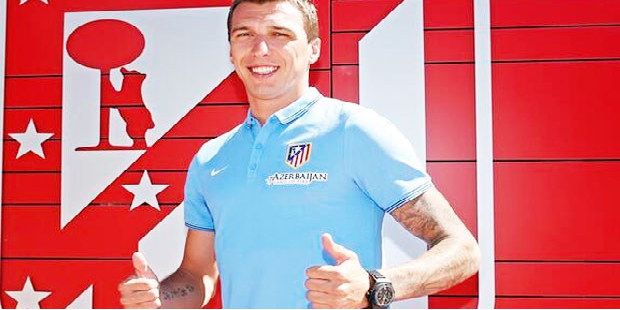- S.D. Eibar ready for maiden La Liga outing
- SD Eibar stengthen ahead of debut La Liga season
- Can ‘Super Mario’ live up to expectations in Madrid?
- MAN IN THE GROUND – Brentford 0 – 4 Osasuna
- Historic Basque derby welcomes S.D. Eibar to La Liga
- Munich to Madrid, via Brazil – Tony Kroos
- Rakitic in Spanish Switch
- Can Spain find redemption in Rio?
- Viva Espana! A season of redemption for Spanish football
- From the old to the new: who can fill the void in years to come for La Roja?
How would football look if Barcelona had opted for Jose Mourinho and not Pep Guardiola?
- By Lee Roden
- Updated: 16 January, 2013

<<<Back to PREVIOUS PAGE
When lifting the league title in the summer of 2009, Mourinho’s words from 1997 of ‘Hoy, mañana y siempre, con el Barça en mi corazon” (‘Today, tomorrow, and always, with Barça in my heart”) would have been celebrated, not ridiculed as they now are. Proof, the fans would say, of his eternal love for Barcelona. In actual fact, such a notion may not be so far from the mark.
There are those who believe that Mourinho’s negative reaction to Barcelona in recent seasons is the cause of a sense of betrayal, of being spurned at the point of taking charge of a project he had longed for since his days as a translator. I tend to agree.
The following summer’s business may have followed a similar path as it did under Guardiola, if not exactly the same. Samuel Eto’o, one of the club’s top goalscorers the previous year, may yet have been retained, though Mourinho may have chosen to do what he did at Inter Milan and move him to the left wing, particularly as it would facilitate the signing of a new striker. Someone like Zlatan Ibrahimovic, perhaps?
Then there’s the case of the youth products that excelled under Guardiola. Would Sergio Busquets and Pedro Rodriguez really have been plucked from (relative) obscurity and given such a key role in the team within the first 14 months of the new Barcelona manager’s tenure? Unlikely.
As great as Busquets is, he attracted huge skepticism and often unfair criticism during Guardiola’s first year as Barcelona senior coach, particularly as he tended to play key games at the expense of Yaya Toure, a fan favourite and more spectacular player. A youth team player dislodging someone of Toure’s talents under Jose Mourinho? It’s hard to see.
Then there’s Pedro. Many observers (admittedly, myself included) believed the Canarian to be inferior to Bojan Krkic during his early days on the fringes of the Barcelona first team. If you had to bet on which of the two would succeed, most would have guessed on the now Milan star rather than Pedrito as he was then known. Would Jose Mourinho have thought any differently? Perhaps not.
After indulging me to this point, you’re probably wondering what impact any of this would have had on football outside of Barcelona’s own personal success. A huge one, I would argue. On a tactical level, Guardiola’s implementation of high pressing from his forwards brought Marcelo Bielsa’s ideas into European vogue, so that we are now naturally led to question whether a forward ‘protects his fullback’ not only in terms of if he tracks back or not, but if he wins the ball himself, preventing the fullback from being put in danger in the first place. Did anyone, rightly or wrongly, see Cristiano Ronaldo as an indulgence in that regard, before the success of Guardiola’s Barcelona? Few, I would argue. More importantly, it was a pressing approach further adopted by Vicente del Bosque’s Spain side.
If Pep Guardiola benefitted immensely from the use of Xavi and Iniesta as a midfield partnership by Luis Aragones, then the Catalan gave plenty of inspiration back to the next Spanish boss. Sergio Busquets and Pedro Rodriguez proved to be huge players for Spain in their 2010 World Cup win. The former played throughout, allowing the less mobile Xabi Alonso the freedom to move at his own pace, while the latter appeared just at the right moment in the final two games when Fernando Torres was beginning to falter.
Spain had, of course, already won a major tournament by then, and would likely have gone far at the World Cup in any case. Would they have succeeded in arguably their toughest victory however, the 1-0 semifinal win over Germany? Perhaps not.
Then, perhaps, the new generation of German youth would be hailed as the great new wave of footballing talent, not those who had emerged from Spain. The slow but visible effect of Spain’s dominance on the Premier League, for example, may not have happened. Would we be seeing a Germanic tinge in England’s top flight rather than an Iberian one?
Then there’s the privilege of watching arguably the greatest club team of all time. Jose Mourinho’s success at Barcelona would likely have not only came on a domestic level, but eventually, in the Champions League too, such is the level of talent at the club, but it’s unlikely that we would have seen the dedication to complex, interchanging, beautiful, brilliant football that we were fortunate enough to observe under Guardiola. That, perhaps more than anything, would have been the biggest loss.
I could continue. What would have happened to Guardiola? A slower but steady rise to prominence, I suspect. Perhaps, via Italy at one of his former teams. What too of Lionel Messi? The number 10’s brilliance lies above and beyond whoever is in charge at Barcelona, but there’s no doubt that his move into the middle of the pitch coincided perfectly with the exponential growth of his goals tally. What too, of Manchester United?
Without Barcelona to stop them, the Premiership side may have went on to retain the Champions League in Rome, making history. Perhaps it would even have led to the fairytale retirement of their coach, or for Cristiano Ronaldo to stay with the club. Indeed, Ronaldo himself may have found he would go on to lead a much less frustrating life as an athlete, going on to win further Ballon d’Or awards without the necessary conditions being created for Messi to truly excel.
In a time where Tito Vilanova’s instant success with Barcelona leads many to naturally question Pep Guardiola’s influence on the side, I hope the last 1800 words or so show that the decision to make him Barcelona coach, and the decisions he made as a result, played their part in a chain reaction which has had a huge impact on football as we know it.
Speculation, of course, but though an educated guess suggests Jose Mourinho’s Barcelona would have won trophies, and may even have gained the love of their supporters, would it have captured the collective hearts of football supporters in the way Guardiola’s managed to? We’ll never know. I’m just glad Txiki Begiristain went with his gut.
Follow @icentrocampista
Pages: 1 2







4 Comments
You must be logged in to post a comment Login